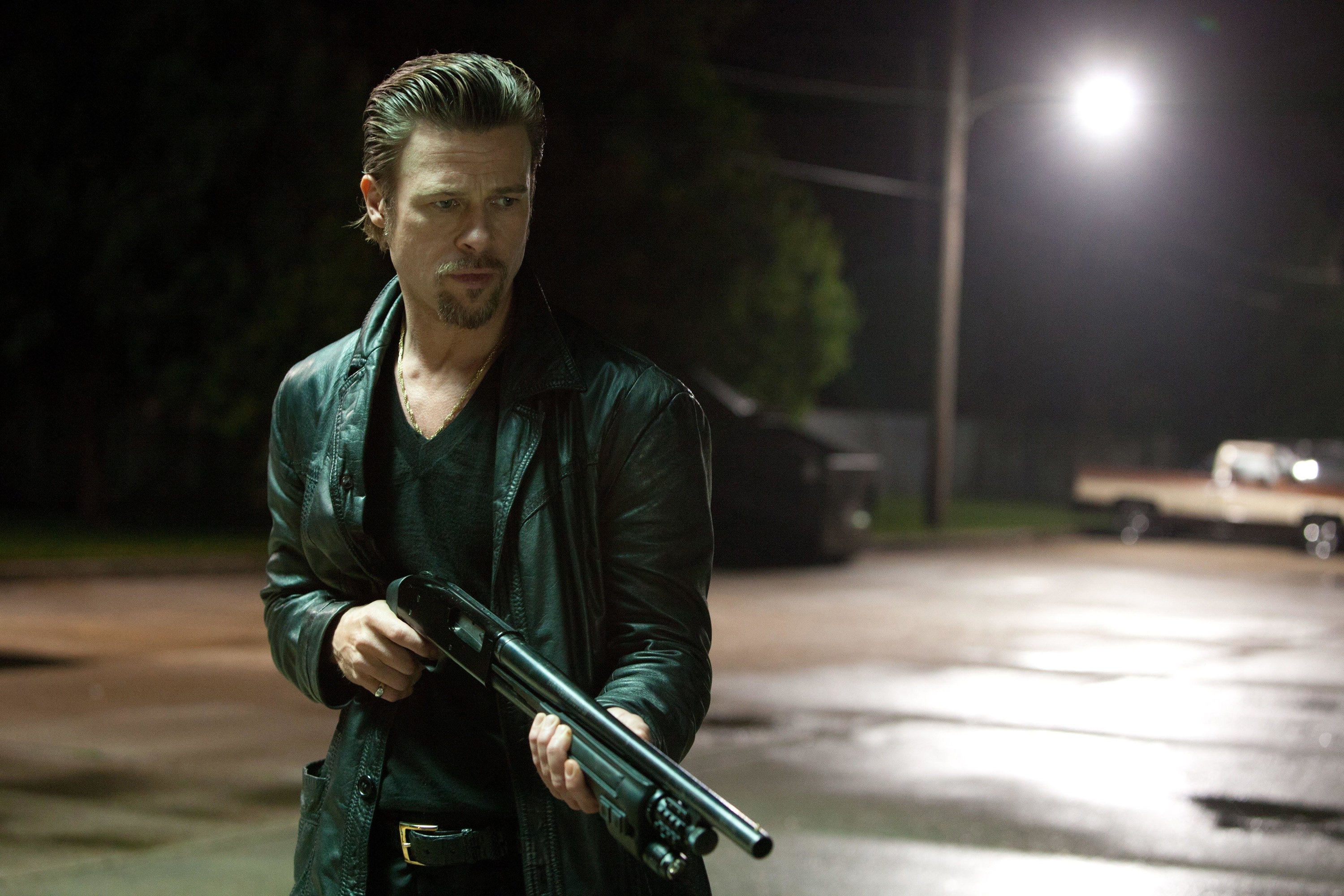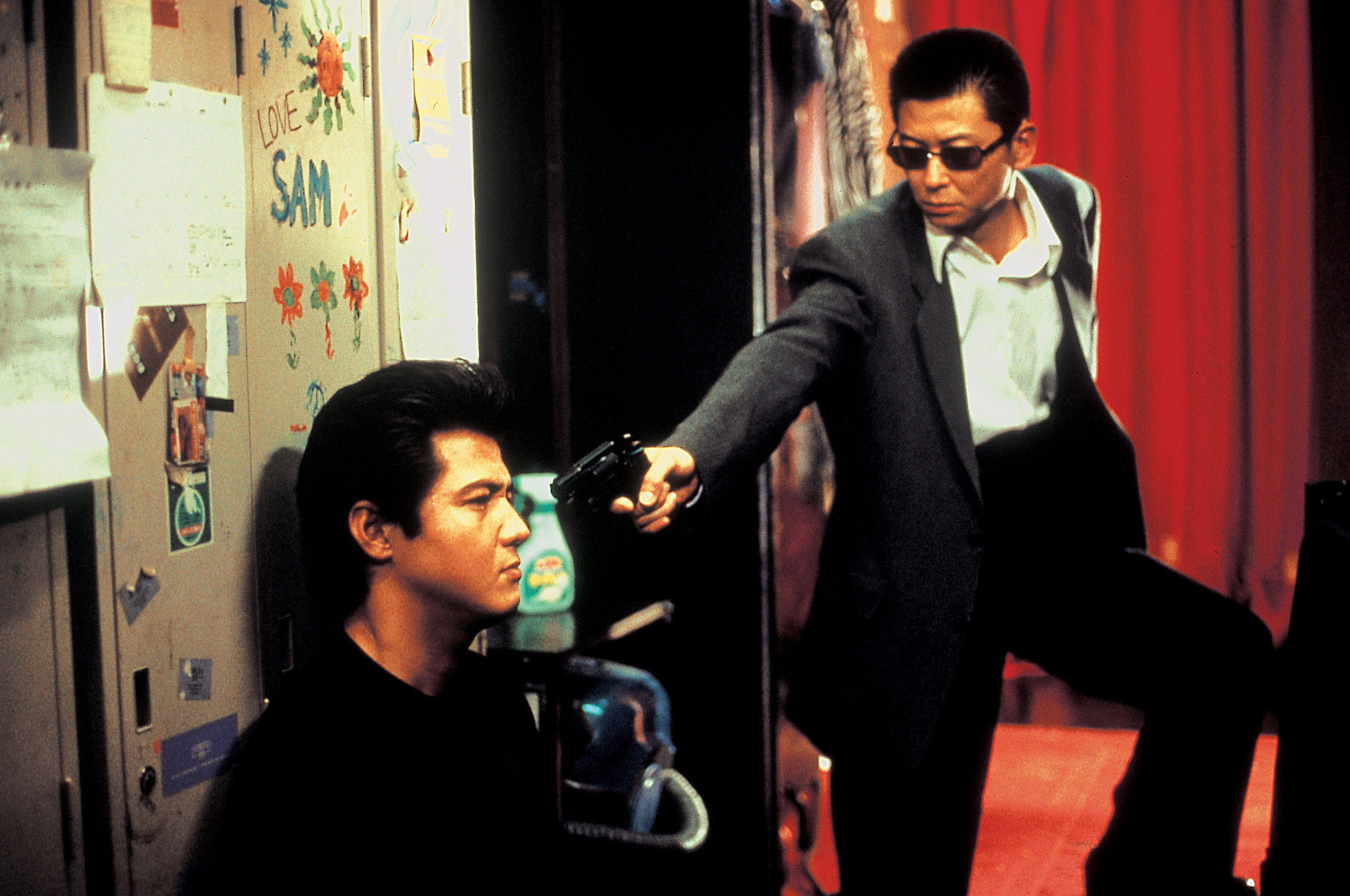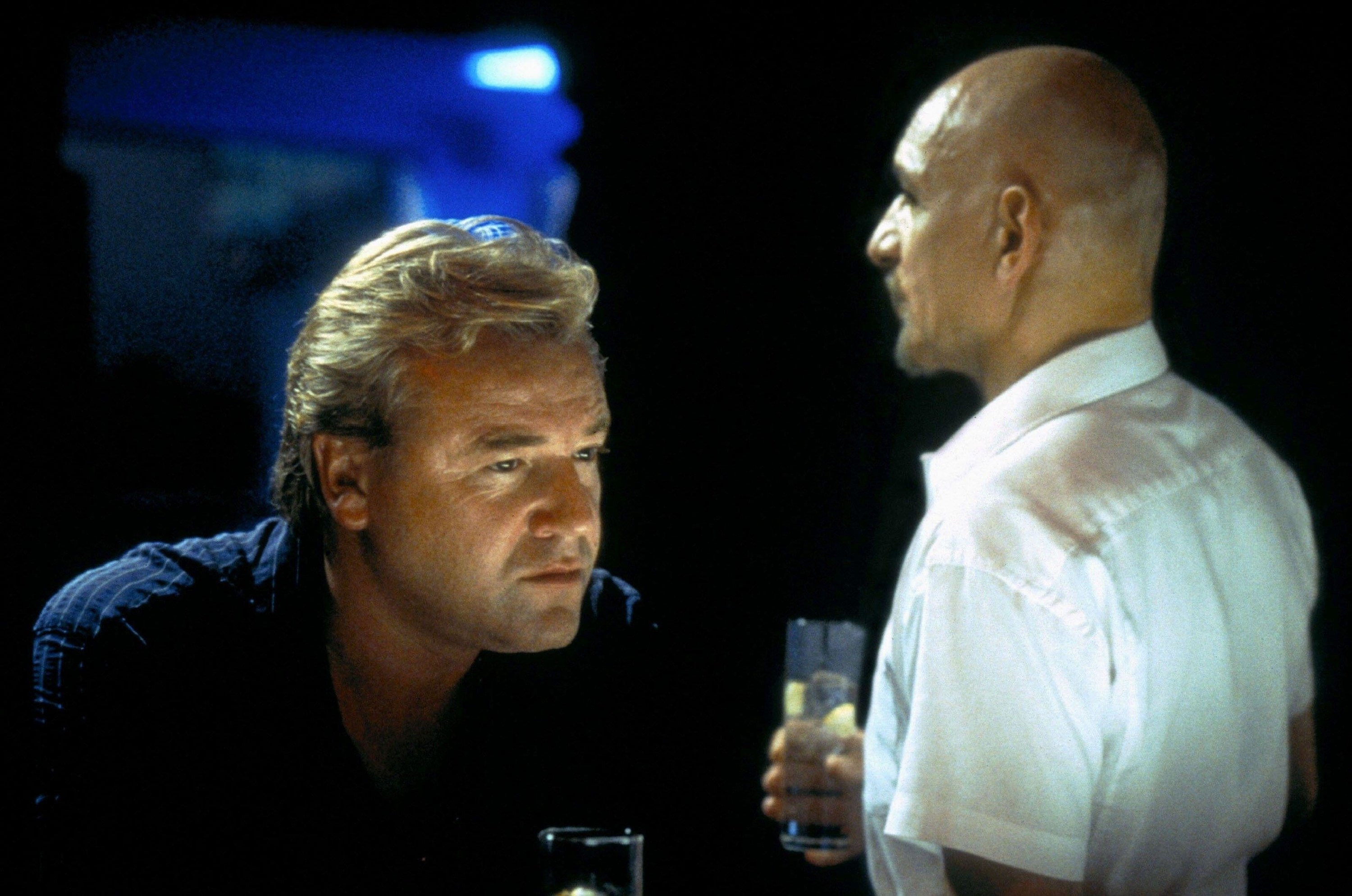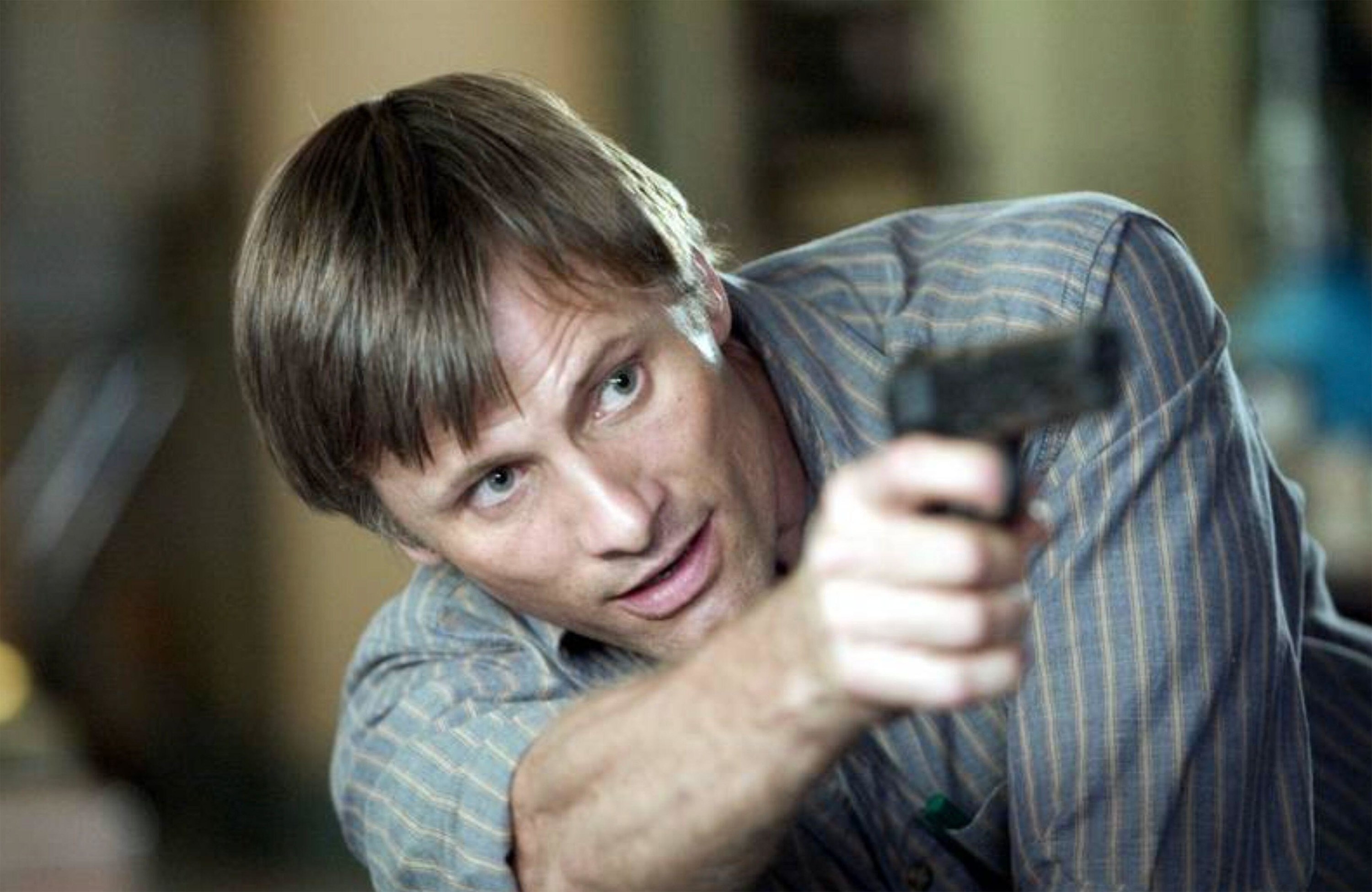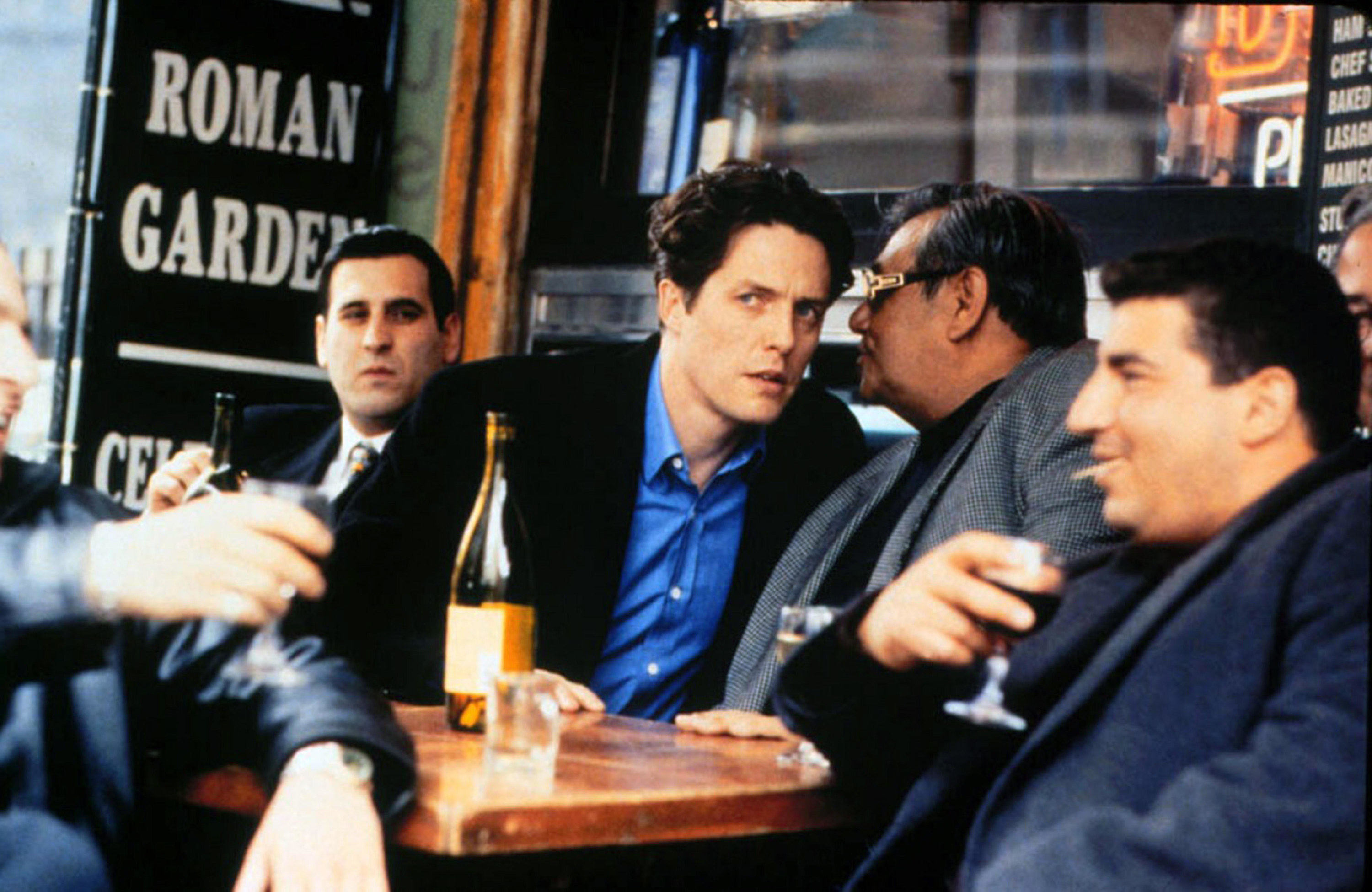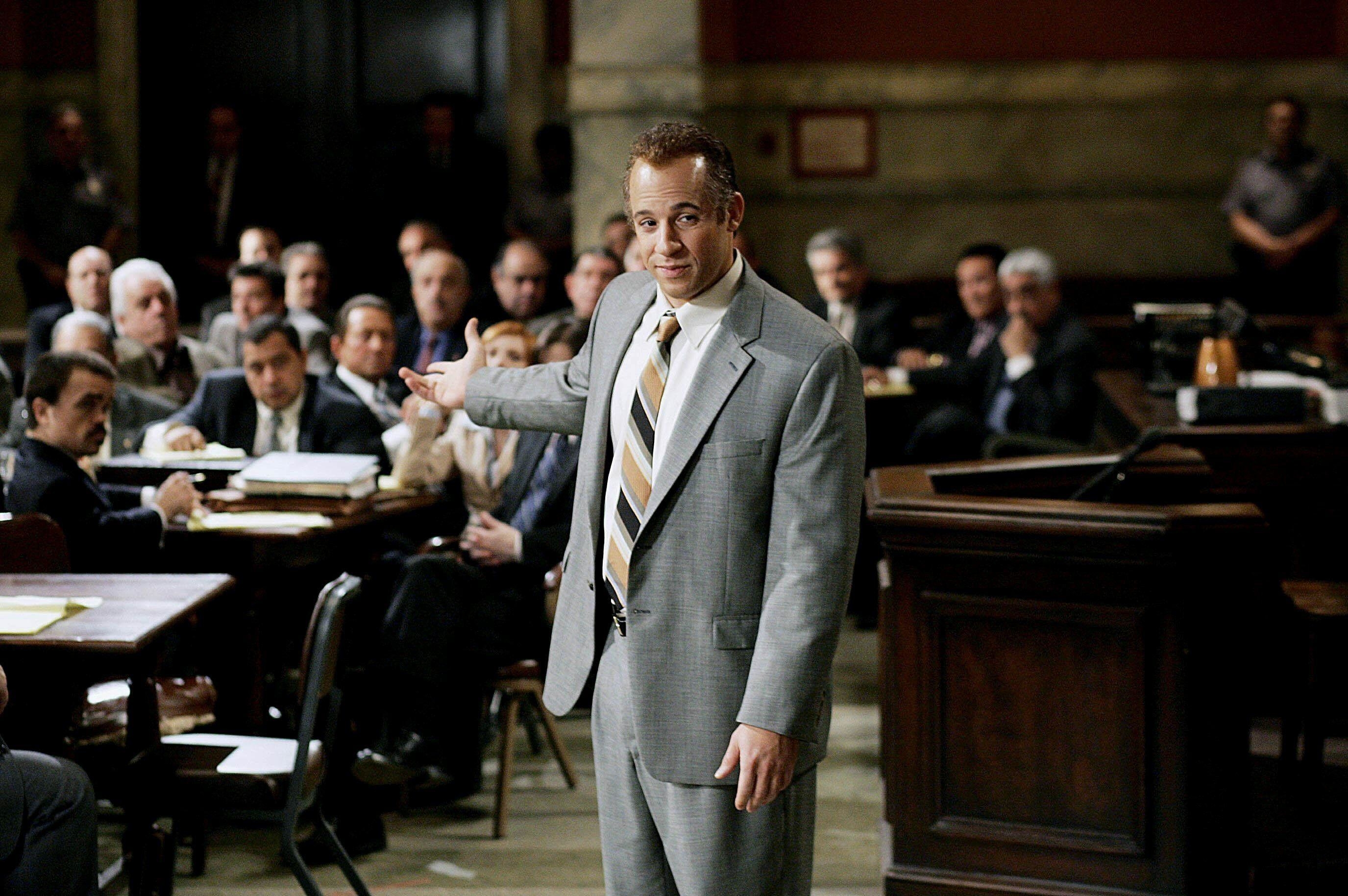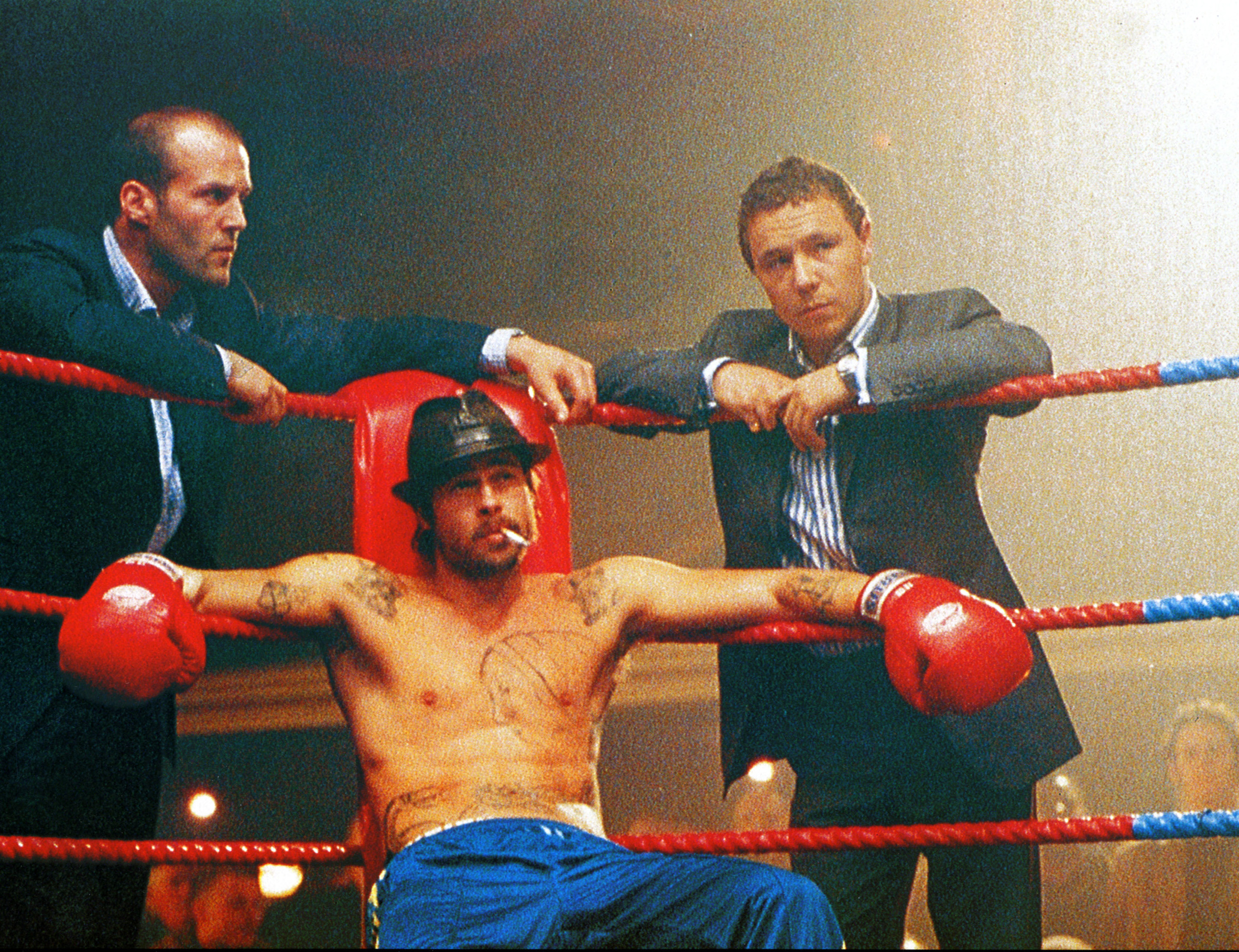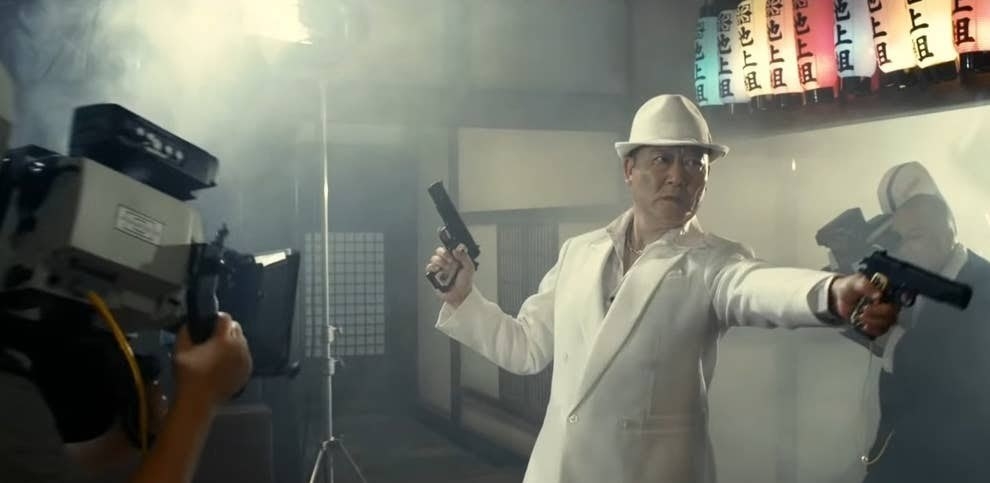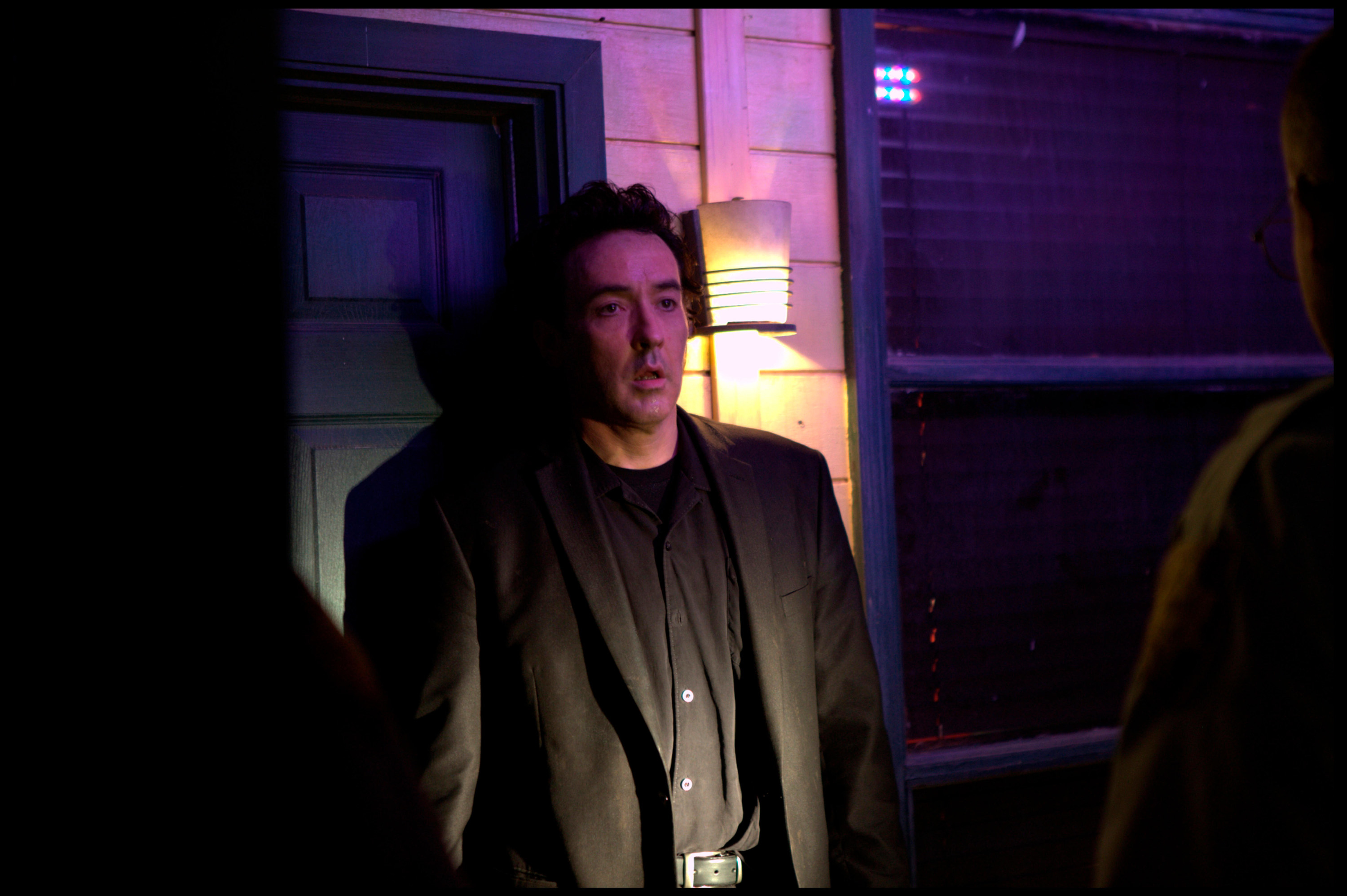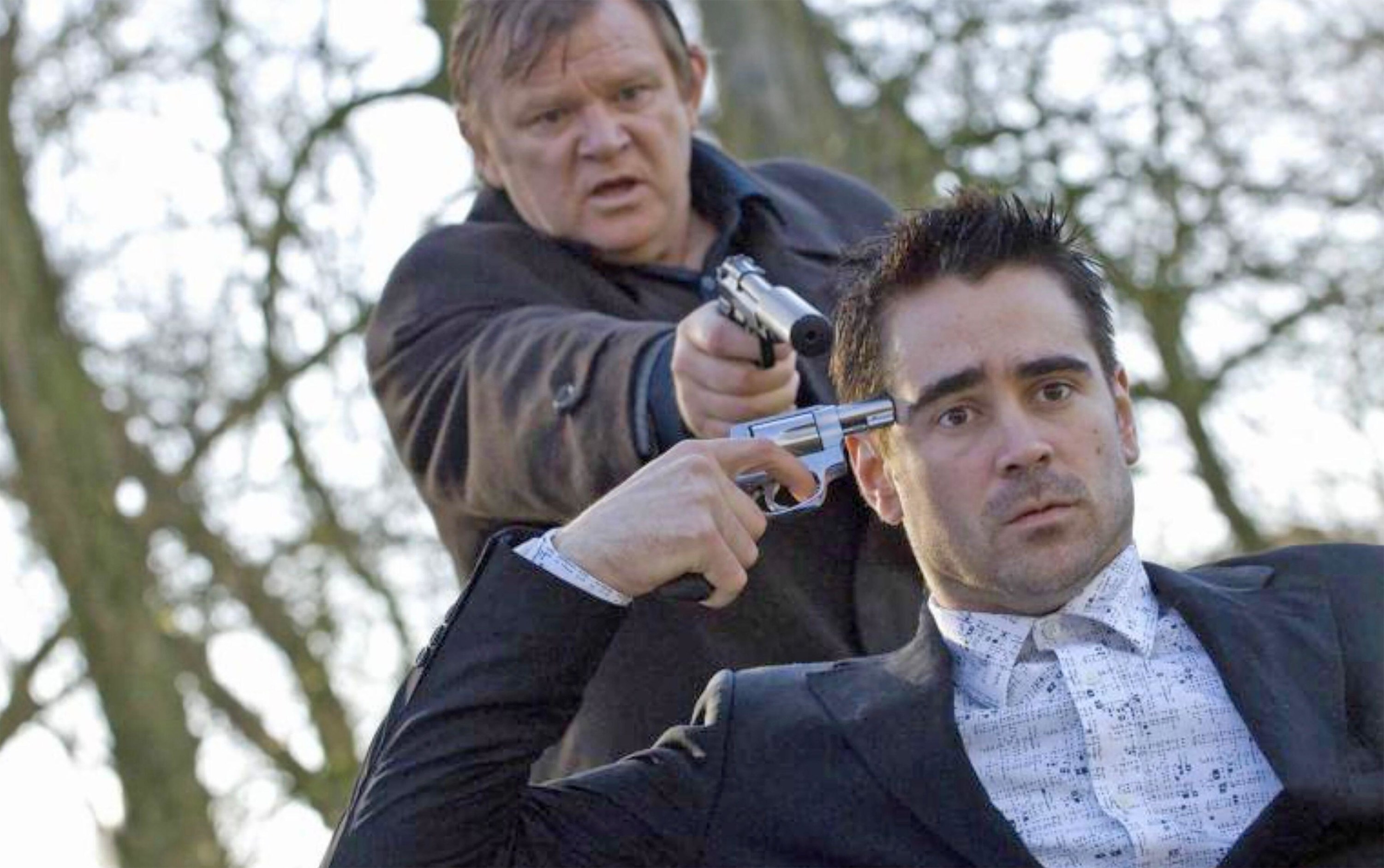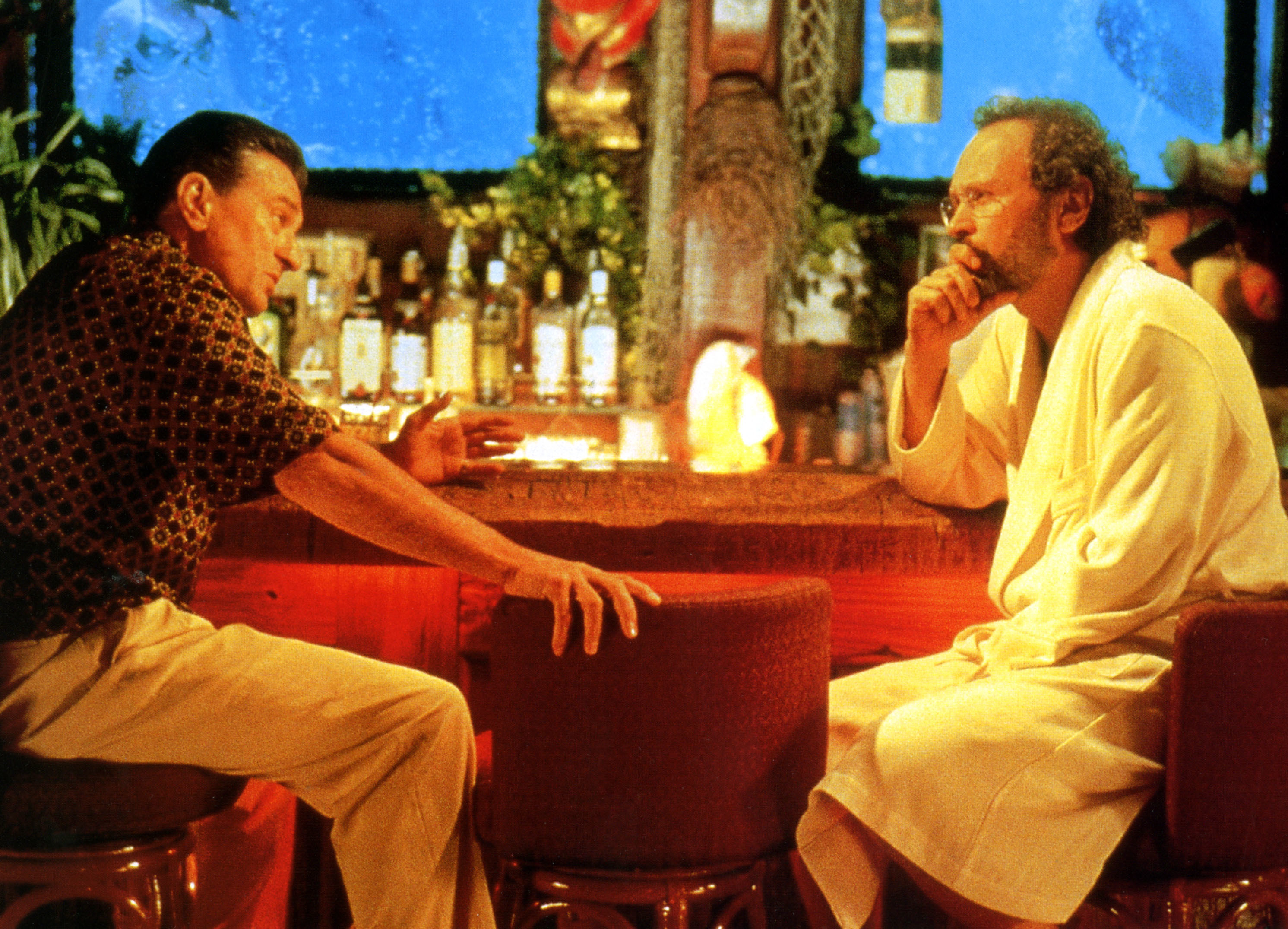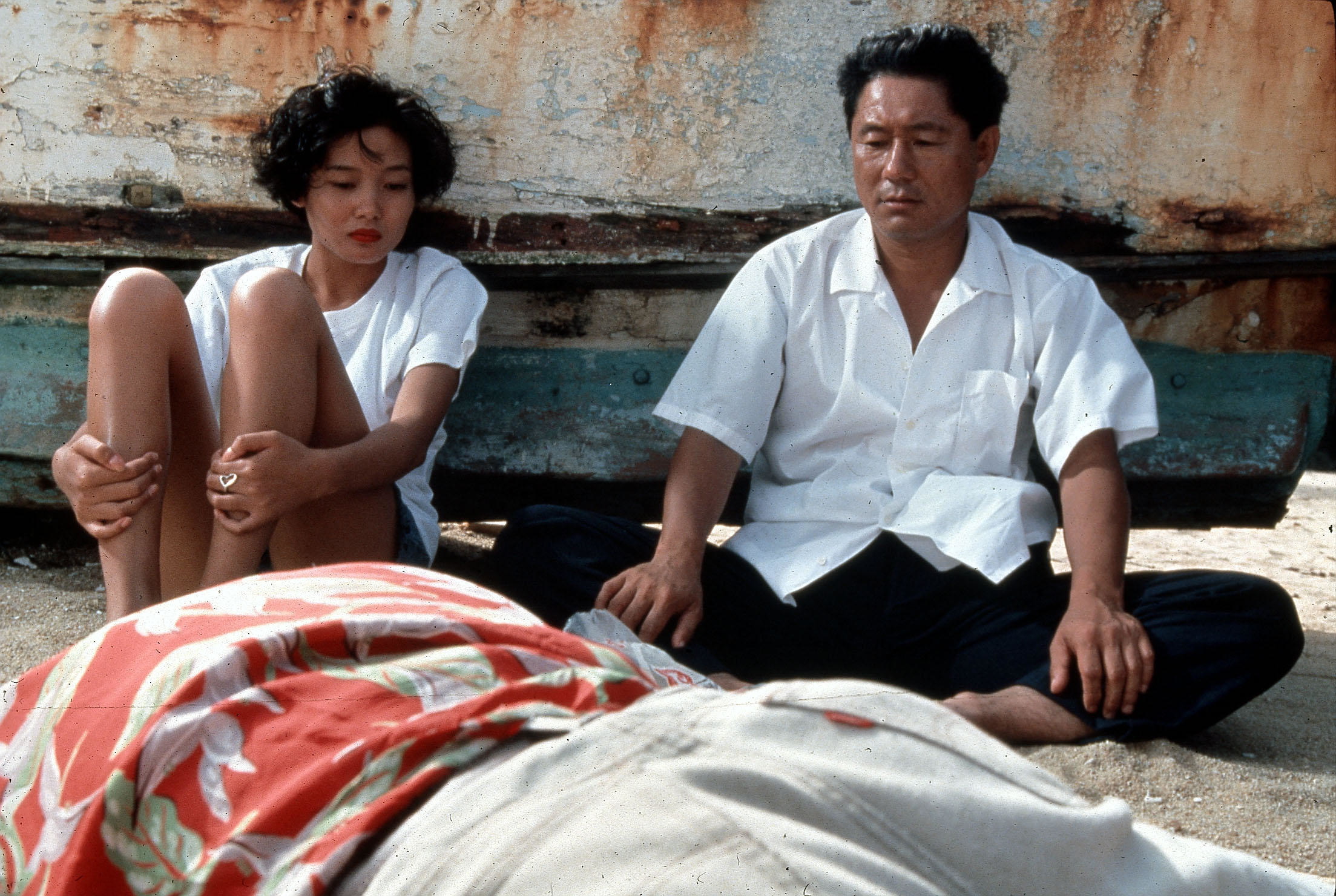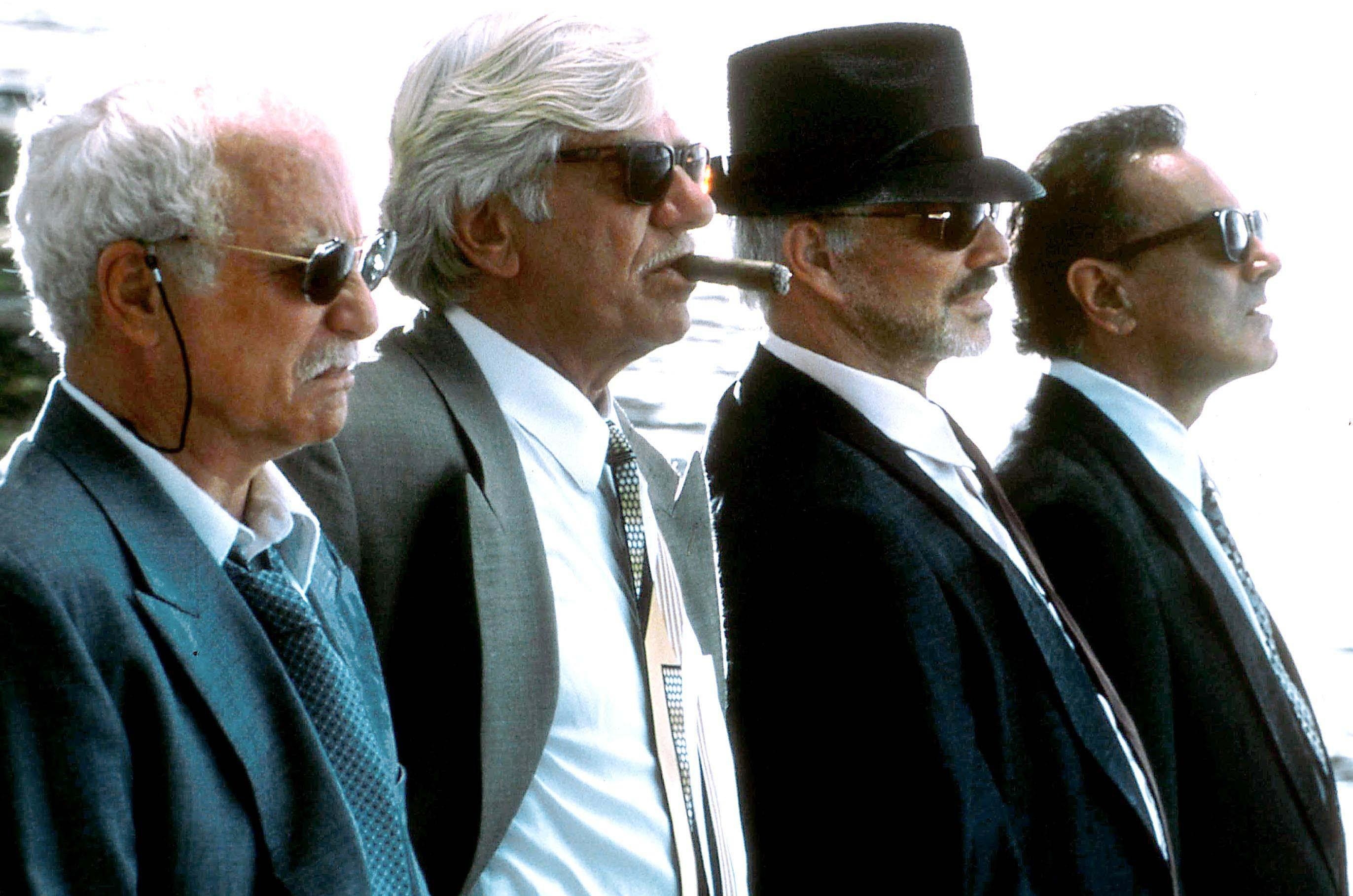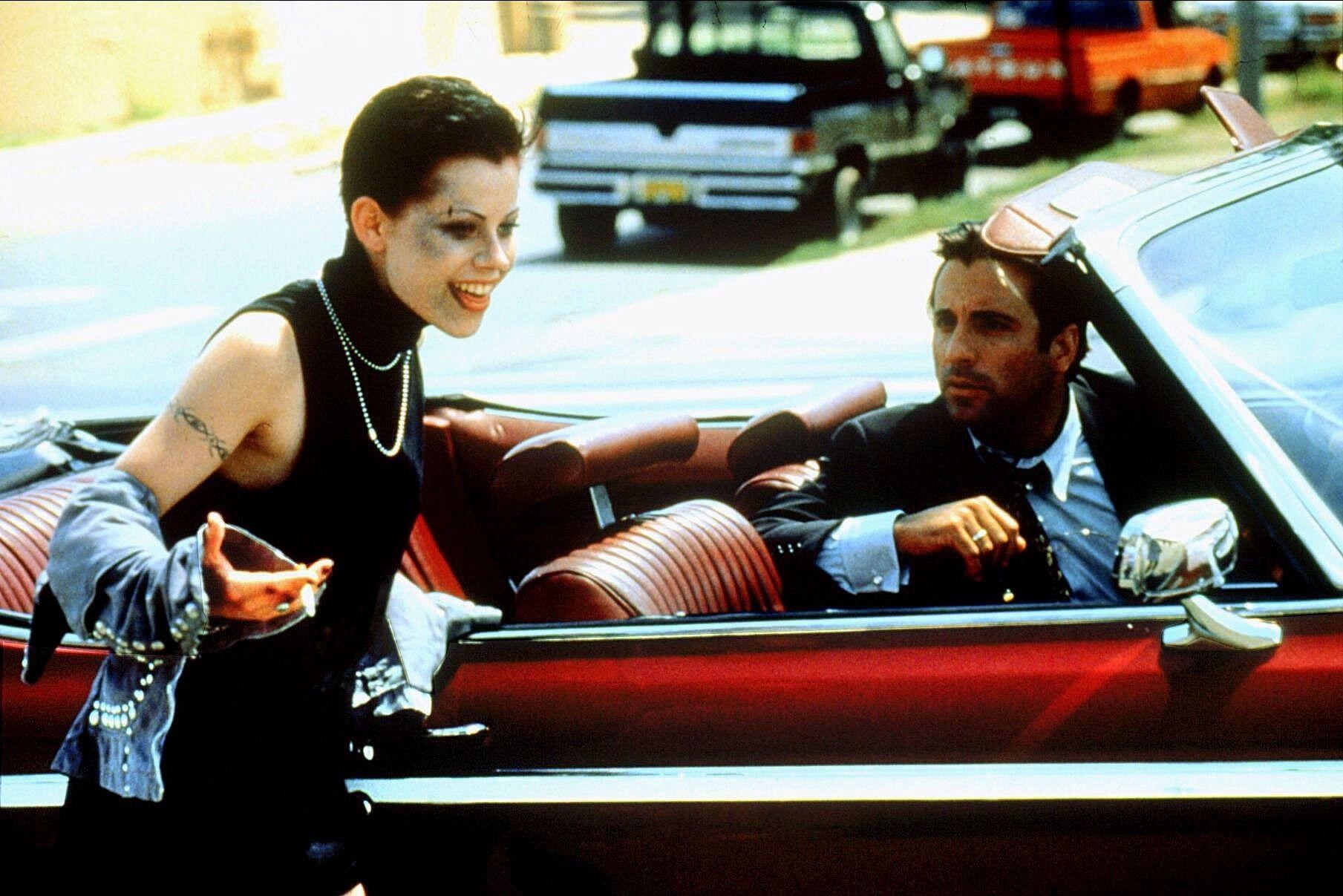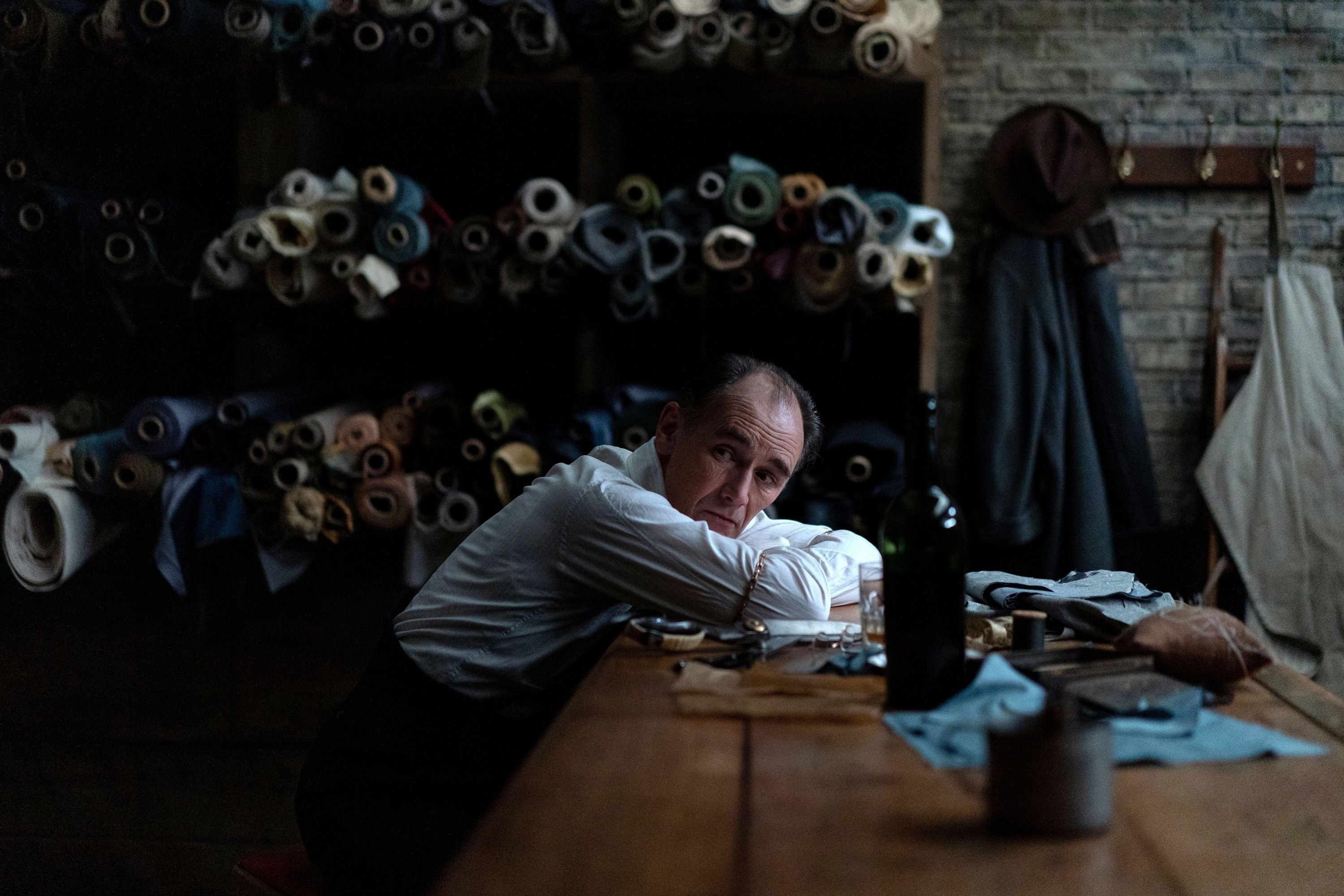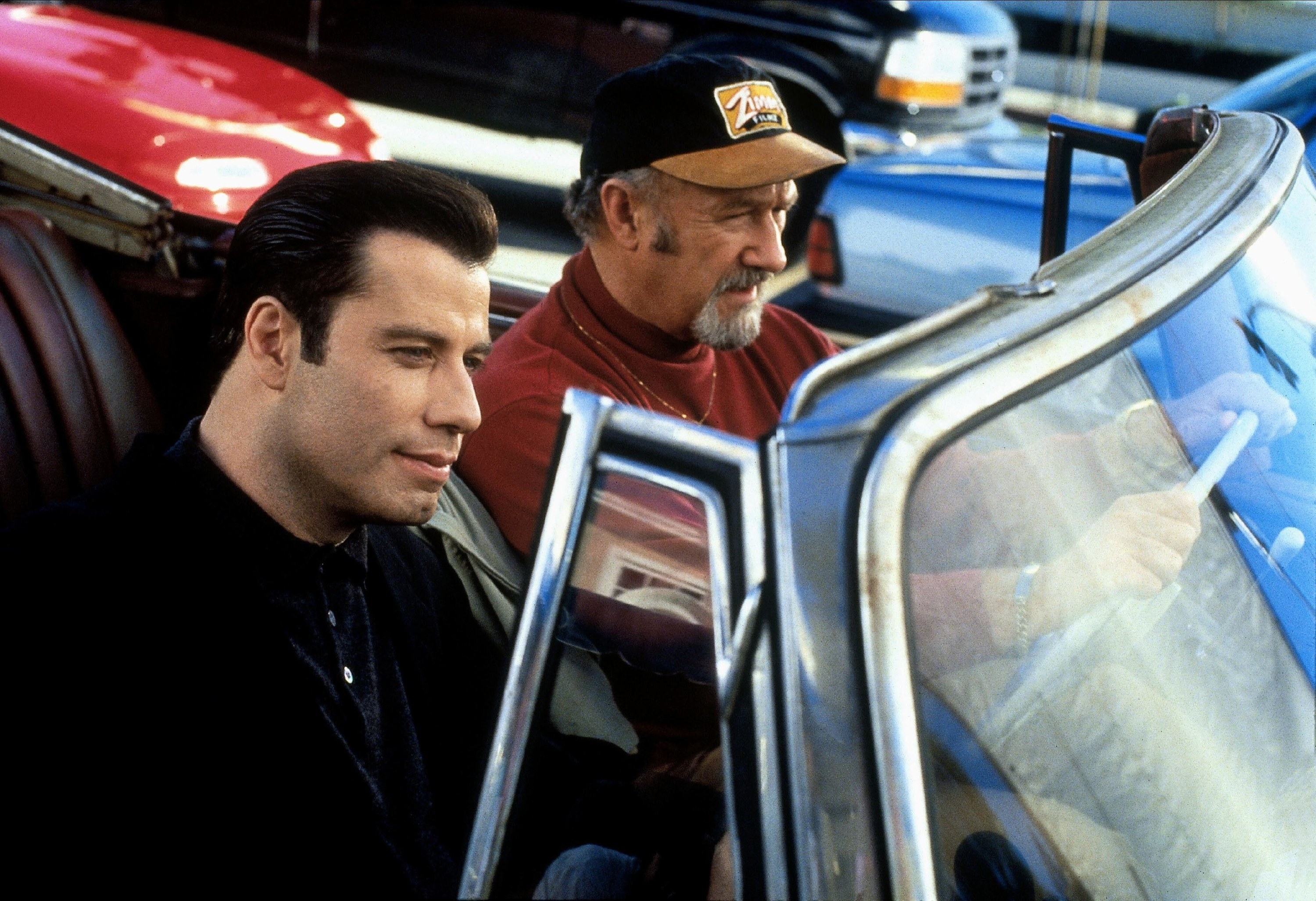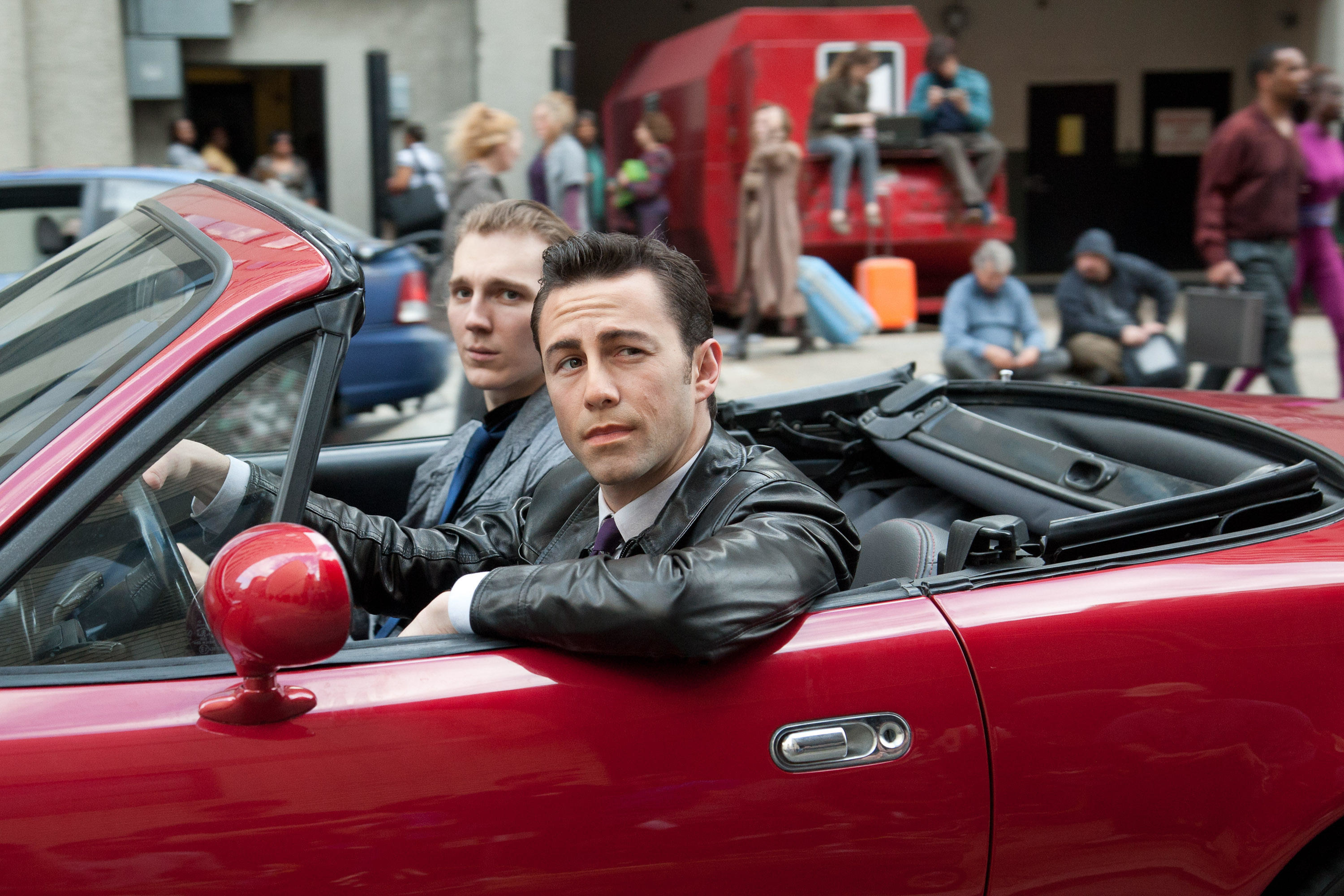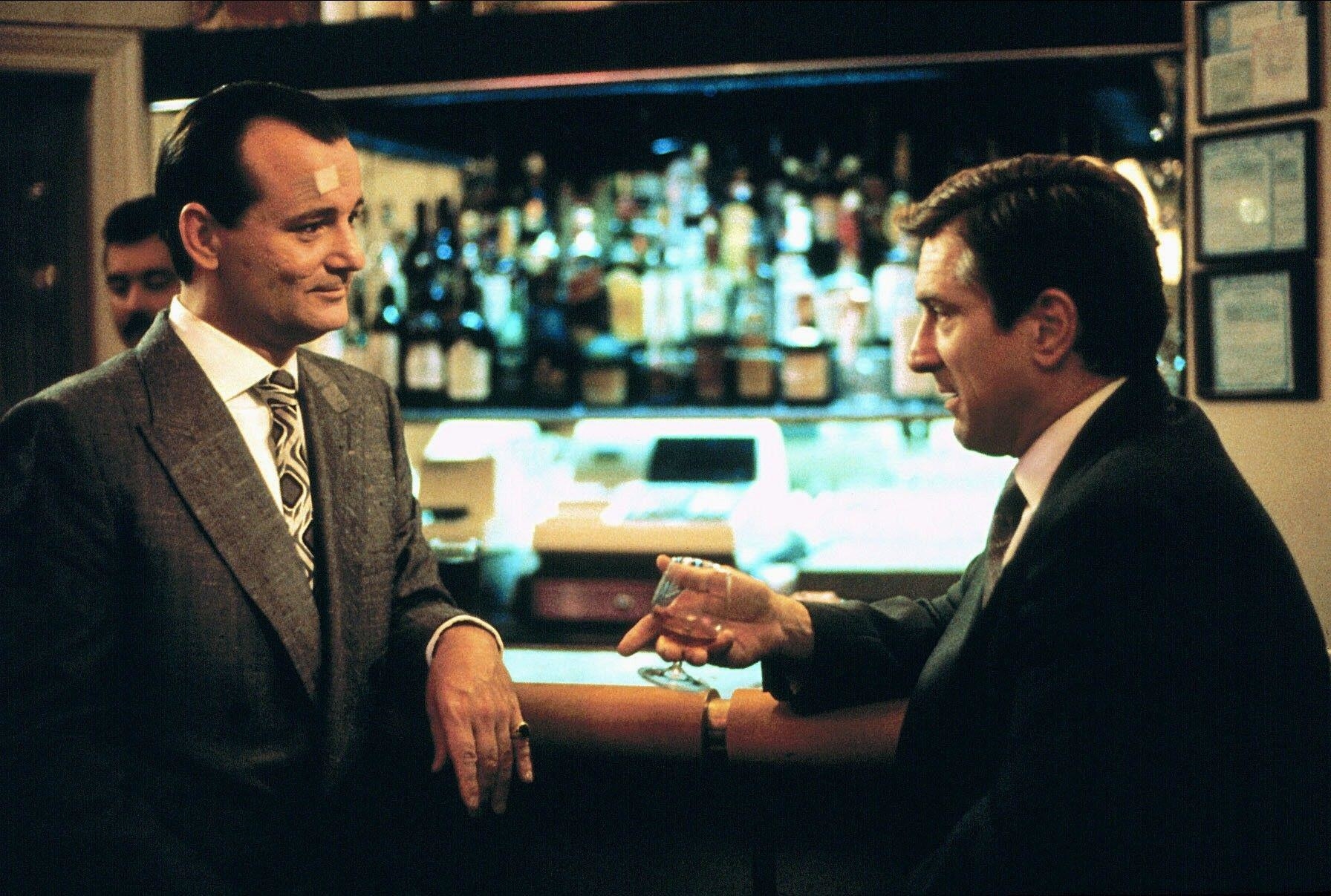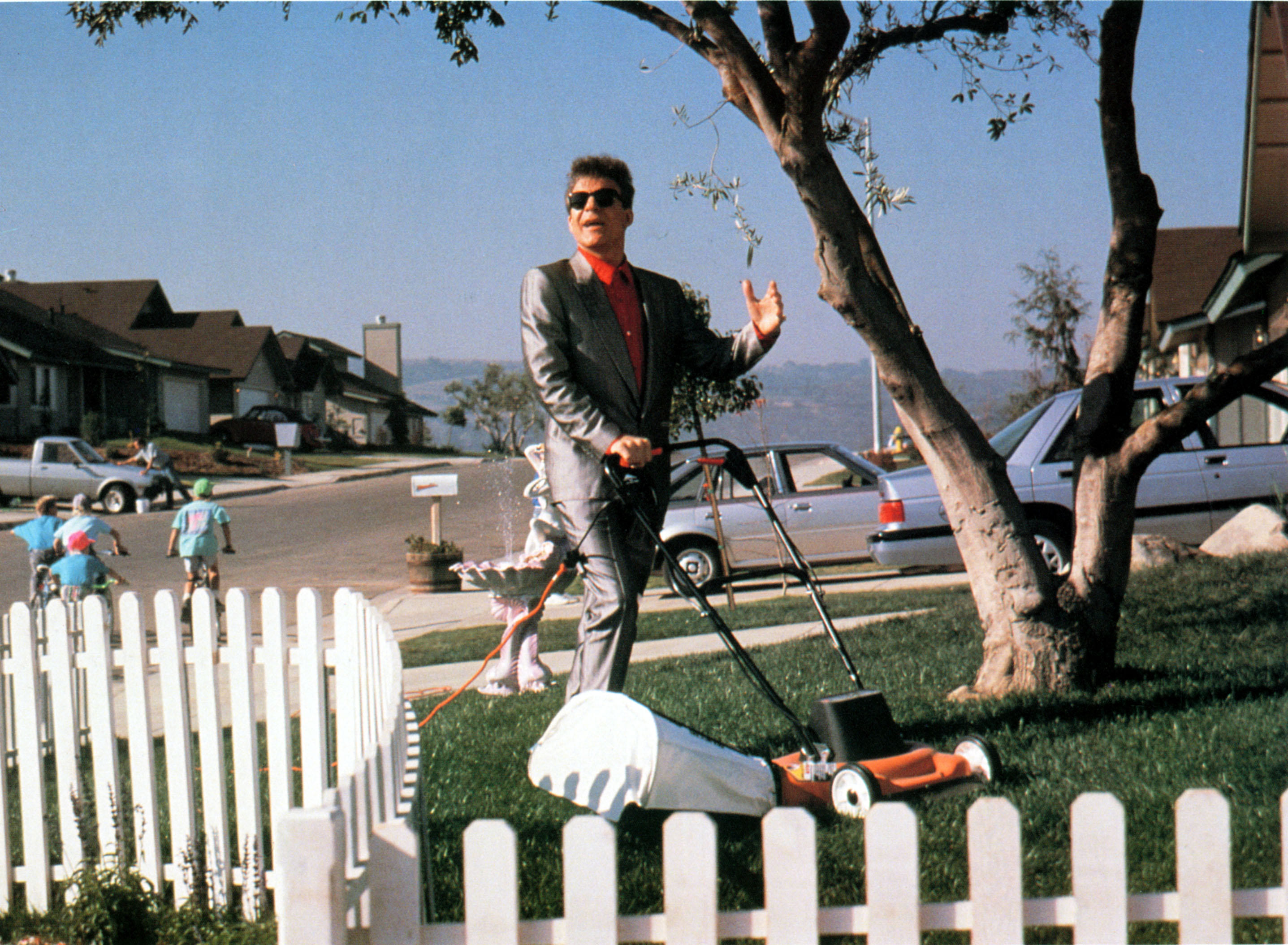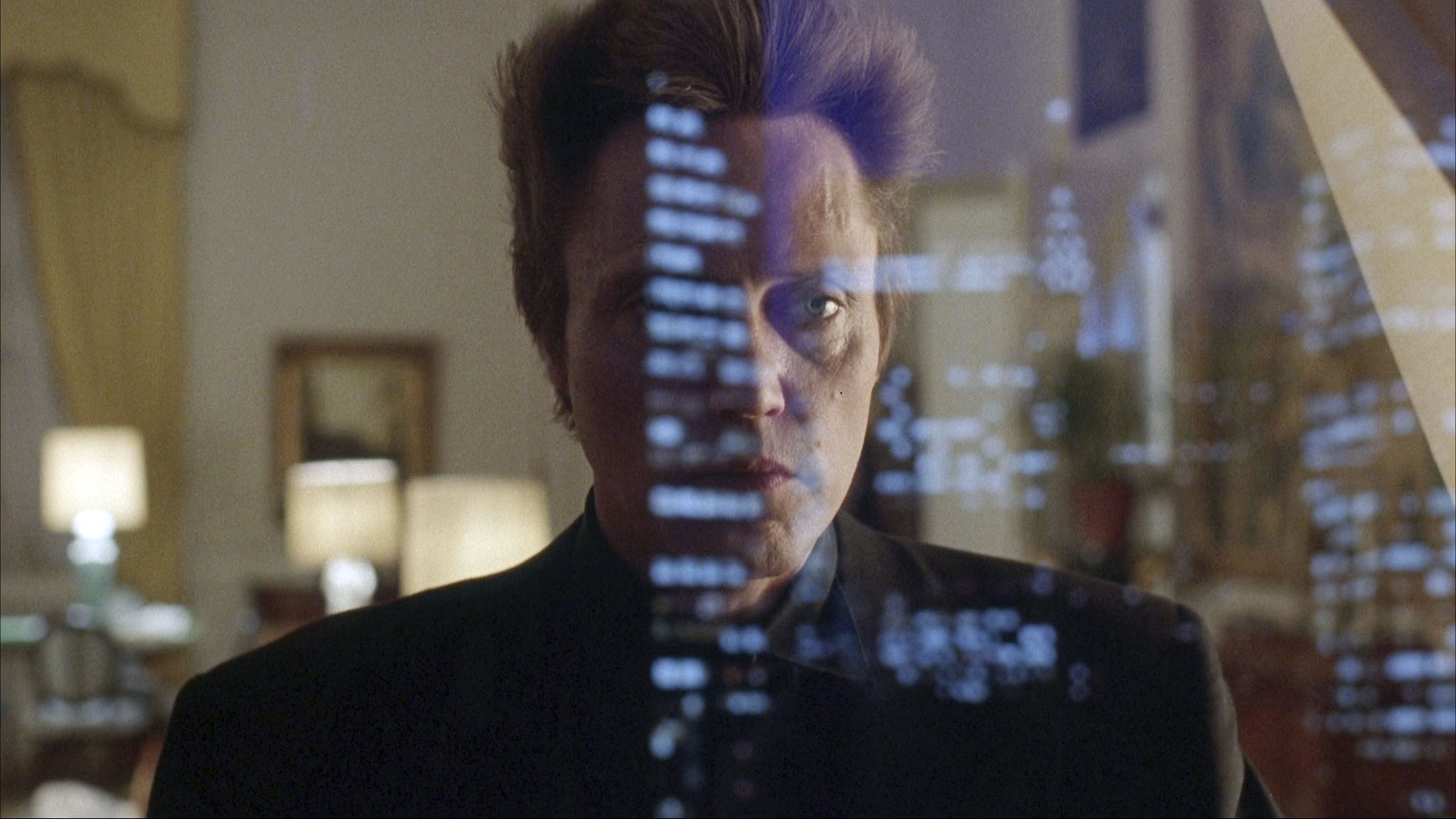The self-anointed “King of Palm Springs” Duke Mitchell is a larger-than-life figure who became an underground figure in a number of disciplines, whether it be slapstick comedy, crooning, or independent filmmaking. Often starring in his own movies, both of which fall firmly into offensive exploitation film territory, none feels closer to Tulsa King more than Gone with the Pope, Mitchell’s sophomore feature that was left uncompleted in the late ‘70s before being finished, restored, and released in 2010. Inspired by The Godfather (although unbelievably so), Gone with the Pope follows four ex-mobsters who venture to Rome to kidnap the Pope and demand a ransom from every Catholic on Earth. Helmed by one of Japan’s most prolific and bold filmmakers, Takashi Miike, Dead or Alive is a different breed of yakuza film, pitting an ambitious small-time gangster against a detective indebted to a more powerful yakuza boss. However, instead of the traditional gangster movie “cat-and-mouse” game between cop and criminal, Dead or Alive decides to lean into chaos, where any and every character can die at the drop of a hat and the violence escalates to bizarre heights. Dead or Alive truly cements itself unlike any gangster movie out there with a final confrontation that’ll leave you absolutely flabbergasted in the best way possible. In the late 1990s, Hollywood somehow became enamored with “fish-out-of-water” mafia comedies, whether it be in the Matthew Perry-starring The Whole Nine Yards (and its very, very bad sequel) or the Joe Pesci-starring 8 Heads in a Duffel Bag. But few were as high profile as Mickey Blue Eyes, in which Hollywood decided to mix up both the mafia subgenre and romantic comedy genre by having British heartthrob Hugh Grant trying to win over the heart of a mob heiress. Anchored by a gruff supporting performance by a dedicated James Caan, Mickey Blue Eyes isn’t a grand slam of either genre, but the film is more fun and charming than the script would normally allow, especially as Grant begins having fun playing toward (and against) his public image. It’s very strange to consider one of the final feature films from legendary filmmaker Sidney Lumet, known for films such as 12 Angry Men and Dog Day Afternoon, was a mafia comedy starring The Fast and the Furious stalwart Vin Diesel and future Game of Thrones breakout Peter Dinklage. Based on the true story of the longest mafia trial in American history, so much so that the real court transcripts were used for the testimony dialogue, Diesel plays Jackie DiNorscio, an incarcerated mobster who is brought to trial on racketeering charges who decided to represent himself in court. A very different character for Diesel, the film brings both drama and humor to such a process in a way that can really only be compared to one other film: My Cousin Vinny. After essentially creating a new genre and making his name with his stylized British gangster film, Lock, Stock and Two Smoking Barrels, director Guy Ritchie’s sophomore feature film has since become his undisputed masterwork of the genre, Snatch. An ensemble piece filled with actors chewing up scenery with colorful and surreal characters, including Brad Pitt as a transient boxer, Vinnie Jones as a brash bounty hunter, Dennis Farina as a wise-ass jeweler, and Jason Statham as a smooth-talking boxing promoter, Snatch did for Ritchie was Evil Dead II did for Sam Raimi, perfecting a fun, new breed of gangster film with a bigger profile and cementing new stars alongside established Hollywood big shots. An oddly inspirational, darkly humorous, and absolutely manic film about bloodthirsty yakuza warfare and the magic of independent filmmaking, Why Don’t You Play in Hell? follows a group of languishing punk-rock filmmakers whose desire to make “the greatest movie ever made” comes to fruition when they accidentally stumble into a gang war, in which rival yakuza leaders battle over a decades-spanning grudge. Referential, hilarious, and incredibly blood, Why Don’t You Play in Hell? completely shakes up all pre-existing notions of gangster films with childlike whimsy and Tarantino-esque style; imagine mixing Kill Bill and The Fabelmans and you might know what you’re walking into with this weird and wild cult flick. In this peculiar little gangster movie that leans closer to the works of David Lynch and Steven Soderbergh than that of Scorsese and De Palma, The Bag Man follows a professional mob hitman (John Cusack) who is hired by a brutal gangster (Robert De Niro) to retrieve a bag and await for his arrival at a remote hotel, under the condition that no one opens the bag under any circumstance. After killing an apparently volatile lower-level thug, the assassin comes in contact with a number of bizarre people around the motel, including FBI agents, an eccentric desk clerk, a headstrong sheriff, a sex worker, and her pimps, all of whom may have their own motivations to take the mysterious bag for themselves. The Bag Man isn’t likely going to blow your mind, but it’s certainly a quirky and unique crime flick certain to keep you entertained thanks to its solid cast. A foul-mouthed and absolutely astounding gangster flick driven by razor-sharp dialogue and a darkly comedic wit, In Bruges, is the directorial debut of acclaimed filmmaker and playwright Martin McDonagh, which surrounds two Irish hitmen (Colin Farrell & Brendan Gleeson) that are sent by their temperamental mob boss (Ralph Fiennes) to travel to Bruges, Belgium after a contract killing gone wrong. But as the hitmen endear themselves to their unfamiliar surroundings and new neighbors, an order comes down that pits each trigger-happy gangster against one another. Brash and violent yet surprisingly poignant, In Bruges is the rare mob film that feels intimate and mines comedy, drama, and plentiful narrative twists from that intimacy. After Martin Scorsese’s one-two punch of Casino and Goodfellas and Quentin Tarantino’s game-changing Pulp Fiction, there weren’t many places left for the gangster movie genre to go in the 1990s. The same could be said for Robert D Niro, who attempted to balance his “tough guy” criminal roles in Heat and Ronin with subversive parts in Mary Shelley’s Frankenstein, Cop Land, and Sleepers. However, these circumstances converged to alter the paths of both mob movies and De Niro’s career for the better with Analyze This, a hysterical twist on mafia film tropes pairing De Niro and Billy Crystal that oddly aligned thematically with The Sopranos, which basically helped reinvent the genre as well. At its most basic, Looper is a science-fiction thriller that pits a past and future version of a contract killer against one another, so it wouldn’t be out of the ordinary to forget that Looper is, indeed, a mafia movie. Surrounding a Kansas City crime syndicate in the future as they send their enemies to the past via time travel to be killed and disposed of accordingly, including their own contract killers to rid themselves of loose ends, there’s a whole foundation of the story driven by the mafia story, including a mafia underboss played by Jeff Daniels, and the wrath of their influence, as established by Old Joe’s tragic background and Seth’s horrifying punishment for breaking their rules. One of the two 1990 movies based on the life of Henry Hill, the other being Goodfellas, My Blue Heaven was written by the late, great Nora Ephron, who based this mafia comedy based on research from her husband, Wiseguy author, Nicholas Pileggi. My Blue Heaven stars Steven Martin as “Vinnie Antonelli,” a mobster in the Witness Protection Program whose over-the-top lifestyle interferes with his pre-testimony protocols, despite the best efforts of his federal agent-turned-friend (Rick Moranis). A cult classic initially conceived as a costarring vehicle with Martin and Arnold Schwarzenegger, My Blue Heaven approaches the tragic ending of Goodfellas as the beginning of a humorous tale of cultures clashing and an unlikely friendship, which makes it all the more memorable. An ultraviolent gangster film with an art film flair, King of New York offers one of the most memorable lead performances of Christopher Walken’s career as Frank White, a ruthless, soft-spoken gangster looking to rebuild his drug empire on the streets of New York after being released from prison. Also assembling a fantastic ensemble cast including Laurence Fishburne, David Caruso, Wesley Snipes, Giancarlo Esposito and Victor Argo, Abel Ferrara’s unforgettable crime film offers a lot of stranger, quieter moments paired with explosive and unforgettable moments of brutal violence that often feel like the blueprint for the tone of The Sopranos less than a decade later.
